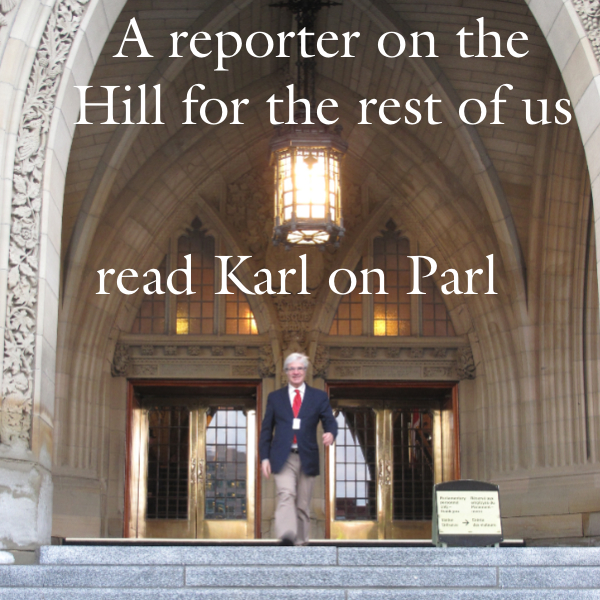Please help rabble.ca stop Harper’s election fraud plan. Become a monthly supporter.
Justice Minister Peter MacKay thinks that sex work is inherently dehumanizing.
Those who do such work, the Minister says, are victims to be helped, not criminals.
Nonetheless, in the new, proposed sex work legislation the Minister tabled in the House on Wednesday he would render illegal at least some of what those “victims” do.
For instance, the proposed legislation makes it against the law to advertise sexual services.
Such a prohibition, sex workers and their advocates say, would make it much more difficult for prostitutes to ply their trade in safe, indoors places.
As for sex work in the great outdoors — the new proposed legislation invents a new category of outdoors space, namely “any place open to public view, that is or is next to a place where persons under the age of 18 can reasonably be expected to be present.”
It will be against the law for sex workers to pursue their occupation in such places.
The Minister says those places include schools and churches. But, when asked, he did not say whether or not the new prohibition would apply, say, in the middle of the night, when no children would likely be around.
Johns and pimps are the main targets
The central feature of the proposed legislation is a blanket prohibition on purchasing sexual services, or even “communicating” for that purpose.
The Minister is clear that he is much more interested in going after the customers, the “johns,” than the prostitutes. He describes johns as “perverts,” full stop.
But the communicating provision related to johns seems, on the face of it, to be potentially problematic.
One of the criminal provisions the Supreme Court struck down in its 2013 Bedford decision was the prohibition against sex workers communicating in public for the purposes of prostitution. The Court said such a prohibition against the Charter right to free speech was unjustified, and, in addition, endangered prostitutes’ safety, in part, because it limited their capacity to screen clients.
Now, it seems the Minister is trying to do an end-run around the Supreme Court. He is banning someone’s speech, but in this case it is that of the johns not the sex workers. Communication, however, is a two-way street. It seems absurd to many that sex workers could have any meaningful right to communicate if their potential customers did not.
Heeded the Supreme Court ruling on one matter
The government was mindful of the Supreme Court’s ruling on one problematic provision of the old law, that concerning “living off the avails” of prostitution.
In the Bedford decision, the Court said this provision was too broad and ill-defined. It could punish the families of sex workers and those, such as pharmacists and taxi drivers, who, in the ordinary course of business, provide goods and services to sex workers.
MacKay made a point of saying the government was mindful of this problem. His proposed new law only goes after those who actually exploit prostitutes.
The proposed legislation would make it a crime to engage in trafficking for the purposes of prostitution or to materially benefit from prostitution.
However, the bill specifically states that such criminal provisions would not apply to people who receive benefit from sex work in the “context of a legitimate living arrangement” with a sex worker.
Nor would they apply to those receiving such benefit “as a result of a legal or moral obligation” (i.e. marriage), or those who provide the same goods and services to sex workers as to the general public.
In fact, even folks who provided certain goods or services to sex workers, but not the general public (the services of body guards, for instance), would be OK under the new law — as long as they did not “counsel or encourage” sex work.
That section of MacKay’s proposed new legislation is likely to gain widespread agreement.
Pimps don’t have a big fan club and MacKay won’t make many enemies by taking them on. But the old law was ridiculously vague and broad in the way it went after after pimps, and the new version corrects that vagueness.
This bill, like so many others, comes with its own cutesy name
On other matters — well, advocates for sex workers are already saying that some of what MacKay proposes will drive sex workers underground and endanger their lives.
One lawyer who practices in Vancouver’s Downtown East Side even told CBC television that what MacKay wants to do could produce more missing and murdered women.
For his part, the Minister says his government has studied how other countries deal with sex work and that what he proposes is a distinctly Canadian solution. He argues that total prohibition and total legalization are both bad.
Both extremes, MacKay says, result in exploitation of people, especially women.
His government, the Minister says, is trying to “thread the needle” on an extremely complicated problem.
Will the courts agree that MacKay has satisfied the principles the Supreme Court laid out in the Bedford decision?
That is far from certain — not very likely, in fact.
For the moment, it is at least a tiny bit comforting to hear a Harper Conservative admit that a social problem is complex, and that the legal response to it must be nuanced.
As with so many other Harper government bills, MacKay could not resist the temptation to give this one an all-too-cute, and, as to be expected, somewhat Orwellian title.
We have had the “First Nations Control of First Nations Education” bill and the “Fair Elections Act,” among others.
Now we have the “Protection of Communities and Exploited Persons Act.”
The trouble is that those exploited persons are not likely to feel too protected by this Act.



